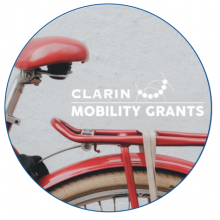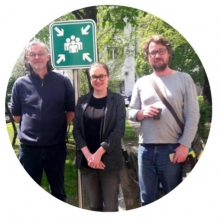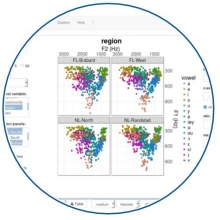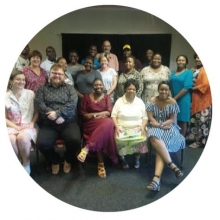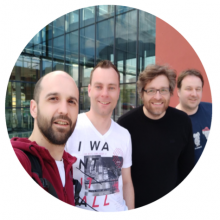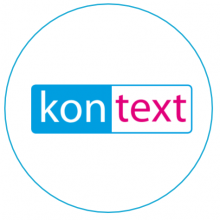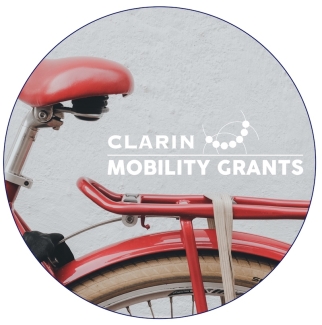
In order to enhance the integration of key research infrastructure solutions at the human resources level, and to stimulate the capacity in the realm of technical development, training, and uptake, CLARIN Mobility Grants are available to support individual researchers, developers, and educators with funding for short visits (typically up to one week) between representatives of CLARIN sites from different countries to collaborate on building and using the CLARIN infrastructure. Alternatively, Mobility Grants may be used for short visits involving CLARIN and other research infrastructures.
The mobility grants are designed to:
- Assist with the integration of resources, tools, services and centres across European countries.
- Initiate, develop and strengthen collaboration between CLARIN developers, researchers and educators in the humanities and social sciences.
- Foster collaboration with new communities in the humanities and social sciences research and other disciplines working with language data.
- Foster collaboration with other research infrastructures.
The Mobility Grants can be used for:
- Visits of staff members from a CLARIN centre to another CLARIN node aimed at sharing technical expertise and know-how in building the CLARIN infrastructure.
- Trips to meetings of staff members from a CLARIN centre on the one hand, and a humanities and social research institution or university, on the other hand, aimed at stimulating the uptake of the CLARIN infrastructure.
- Visits of members (staff, researchers, lecturers, PhD students) from a CLARIN centre to another international research infrastructure aimed at sharing technical expertise and know-how.
Eligibility
Applicants need to fulfil these criteria:
- The applicant is based in a CLARIN ERIC country or affiliated with a CLARIN centre.
- The collaboration is clearly focused on use or development of (aspects of) the CLARIN infrastructure.
- The home institution of the applicant or the node hosting the visit must show a strong ongoing connection with CLARIN.
- The applicant's institution and the node to be visited are located in different countries.
If clearly justified, a grant can be asked for a meeting which requires more than one person travelling, e.g. to enable an IT expert and a humanities researcher or educator to travel somewhere in tandem.
Mobility grants are primarily intended for bilateral, personal collaboration, and not for the attendance of workshops, conferences or other scientific events, or meetings of CLARIN committees or working groups.
Examples of Exchange Formats
The following examples may illustrate the range of possible exchanges for which grant applications can be submitted:
(a) Technical, scientific and teaching staff from CLARIN centres to receive training in all aspects related to setting up or operating centres and/or services.
(b) Experts from CLARIN centres to provide in situ training in their area of expertise to other teams.
(c) Technical, scientific and teaching staff from CLARIN centres to collaborate with technical, scientific and teaching staff on the solution of specific problems related to the construction or operation of CLARIN.
(d) Technical, scientific and teaching staff from different CLARIN nodes to collaborate on porting solutions between centres, languages and/or disciplines.
Application and Assessment Procedure
- This is a continuous call for grants up to € 1.200 each. (Should the call budget be close to exhaustion, this will be announced on this web page and in the CLARIN Newsflash).
- Applications will be checked for eligibility by the Knowledge Infrastructure Committee (KIC) (see above).
- For the eligible applications, peer review will be organised within the KIC. The main assessment criteria will be:
- The expected impact on integration across CLARIN teams.
- The potential for effective knowledge transfer between nodes in the CLARIN network.
- The contribution to the uptake of the CLARIN infrastructure in new communities.
- The potential for effective knowledge transfer between CLARIN and other international research infrastructures.
- The applicant sends this application form by email to mobility-grant [at] clarin.eu (mobility-grant[at]clarin[dot]eu), with the following information:
- Applicant’s contact details.
- Information about home and host institution and a brief description of the applicant’s relationship with CLARIN.
- A brief description of the purpose of the visit and the work plan
- A provisional budget, with a breakdown for the major cost categories (travel, per diem, other).
- Statements of endorsement (to be sent separately by email to CLARIN Office, no need to collect signatures) from the host institution that it is willing to be the host and to provide access to staff and facilities. The statement can be as short as: 'I have seen the application and I endorse the request for a mobility grant for a visit that is being prepared by XXX.'
- Applications will be processed within three weeks.
Terms and Conditions
- The typical maximum duration of a visit is seven days; this may be distributed over two or more stays, and visits may be prolonged if other sources of funding are available.
- The maximum amount for a grant is € 1.200, and it can be used to cover:
- Travel from the applicant’s domicile to the site to be visited and back, according to CLARIN ERIC travel reimbursement rules (typically economy, lowest fare).
- A fixed per diem of € 125 for each full day to cover the extra cost of accommodation and subsistence.
- The grants should be used within three months after the submission date.
- A blog post about the visit that is suitable for publication on the CLARIN ERIC website should be submitted within two months of the visit (blog post instructions and template are available).
- Reimbursement will only take place after receipt of the blog post for the CLARIN website.
- The CLARIN funding is to be mentioned in all external communication related to the visit.
Blog Posts
Here you can read some blog posts written by researchers, developers and educators who received the CLARIN Mobility Grant.
